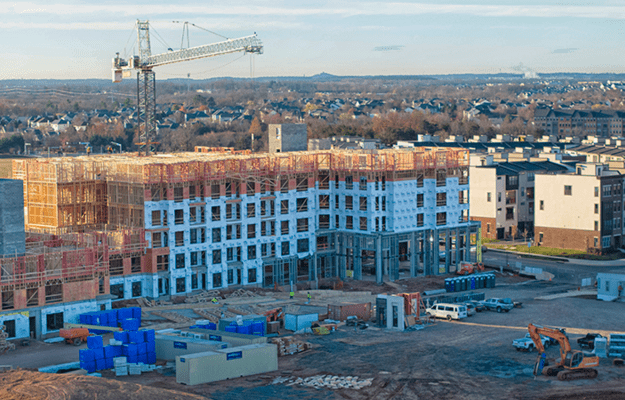
(karamysh/Shutterstock)
What’s the Link between Housing Markets and the Financial Health of Cities?
- Title:
-
The effect of the housing crisis on the finances of central cities
- Author:
-
Howard Chernick, Andrew Reschovsky, Sandra Newman
- Source:
- Publication Date:
-
2021
People depend on their local governments for essential infrastructure and services, like sanitation, transportation, education, safety, and public health. In most cities, local governments rely on property taxes as a primary revenue source. This dependency links the state of the local housing market to the stability of local government finances and their ability to meet residents’ needs. This study analyzes the period leading up to and during the Great Recession to understand how the boom and bust of housing prices and the unprecedented surge of mortgage foreclosures that followed affected the financial health of cities across the United States.
The authors use a specially created database of central cities, called fiscally standardized cities, that includes revenues and expenditures of all local governments that provide services to city residents. They link this revenue and spending data with housing price and foreclosure data from CoreLogic. The data cover from 2000 to 2014, and the sample includes 91 of the country’s largest cities. The authors analyze these data to understand the effect of housing prices and foreclosures on property tax revenue. They also explore how local policies, like limits to property tax increases, influence the connection between the housing market and city revenues during this period. The authors find that both housing price changes and foreclosure rate changes significantly affect property tax revenues. Though limits to property tax increases helped stabilize finances for some cities during the housing bubble and bust, the study illustrates that real estate bubbles produce significant fiscal risks for cities that often result in spending cuts for residents.
Key findings
- Across the cities sampled, housing prices were volatile during the study period. Between 2000 and 2006, housing market prices increased by 74 percent. After the crash of the housing market, prices began a sharp five-year decline, reaching 2003 levels by 2011. The decline in housing prices led to a sharp rise in mortgage delinquencies and foreclosures, which increased from less than 1 percent for the first half of the decade to a peak of 4 percent in 2011.
- On average, property tax revenue declined by nearly 12 percent between 2009 and 2014. The authors estimate that more than three-quarters of these property tax revenue declines were driven by decreasing housing prices (associated with a 6.0 percent revenue decline) and the rise in foreclosures (associated with a 3.4 percent revenue decline).
- The 3.4 percent decline in property tax revenues associated with foreclosures far exceeds the plausible tax revenue lost from the foreclosed properties. This suggests the spillover effects of foreclosures, such as the declining value of nearby properties and increased property tax delinquencies, as well as the correlation between increased foreclosure rates and decreases in household income, all contributed to the fiscal effects of the housing bust.
- In cities with limits on property tax increases, the health of city finances did not fluctuate in response to housing price changes as much as cities without these limits, helping maintain stability in property tax revenues in a period of booming housing prices and limiting reductions in property tax revenues when housing prices fell. However, potentially negative consequences of property tax limits were not investigated.
Policy implications
The authors of the study outline three recommendations for local, state, and federal policymakers to help stabilize city finances in the face of housing market change:
- Local governments: Prepare for the fiscal consequences of a future drop in housing market prices by taking advantage of periods of housing price growth. Using the additional revenue from growth periods, local policymakers can increase balances for rainy day funds or prefund capital infrastructure projects.
- State governments: In anticipation of future housing market declines, states should consider prioritizing policies that minimize foreclosures to stabilize homeownership and avoid cascading neighborhood effects.
- Federal government: In the face of another housing bust, the federal government should consider structuring increases in federal aid over multiple years to help state and local governments secure and maintain financial stability throughout a recovery period.


